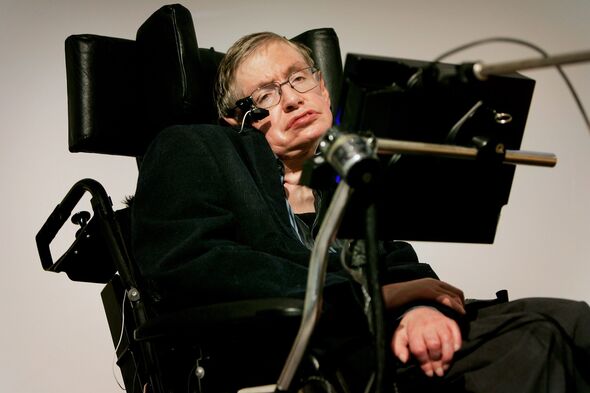Science
Physicists Warn of Potential Black Hole Explosion by 2035

Researchers from the University of Massachusetts Amherst have issued a significant warning regarding a primordial black hole that could explode by 2035. This potential event has a staggering 90% chance of occurring, marking a cosmic phenomenon that humanity has yet to witness. The primordial black hole, believed to have originated shortly after the Big Bang, is currently being monitored by advanced telescopes aimed at capturing the anticipated explosion.
Lead study author Michael Baker, an assistant professor of physics at UMass Amherst, emphasized the likelihood of this occurrence. “We’re not claiming that it’s absolutely going to happen this decade,” he stated, “but there could be a 90% chance that it does.” This finding raises intriguing questions about the nature of black holes and their impact on our understanding of the universe.
Understanding Primordial Black Holes
Primordial black holes are theoretical entities thought to have formed in the early universe, rather than from the collapse of massive stars. Unlike conventional black holes, which emerge when a star exhausts its nuclear fuel and collapses, primordial black holes could have formed from the extreme conditions present during the first moments of the universe’s existence, approximately 13.8 billion years ago.
Black holes are regions in space where gravitational forces are so intense that nothing, not even light, can escape. As these cosmic giants consume surrounding matter, they create an incredibly dense core. The first widely accepted black hole, Cygnus X-1, was identified in 1971, marking a milestone in our understanding of these phenomena.
The renowned physicist Stephen Hawking made significant contributions to the study of primordial black holes in the 1970s. He proposed that these black holes could emit radiation, known as ‘Hawking radiation’, if they reach sufficient temperatures. As they emit this radiation, they gradually lose mass, which could ultimately lead to an explosive event.
Implications of the Potential Explosion
If this primordial black hole were to explode, the event could release a multitude of fundamental particles, some of which may not yet be confirmed by existing scientific models. The researchers assert that observing such an explosion would “revolutionise physics and rewrite the history of the universe.”
Baker highlights the importance of being prepared for this potential cosmic event, which will not be visible to the naked eye. “Since we already have the technology to observe these explosions, we should be ready,” he noted. The explosion is theorized to occur every decade or less, rather than the previously thought timeframe of once every 100,000 years.
The research team published their findings in the journal Physical Review Letters, emphasizing that exploding primordial black holes could provide transformative insights into the universe. They stated, “Exploding PBHs could provide evidence for the existence of PBHs, evidence of Hawking radiation, and give definitive information on the fundamental particles present in nature.”
As physicists continue to monitor the primordial black hole, the scientific community anticipates the possibility of groundbreaking revelations that could unlock some of the universe’s oldest secrets. The next decade holds significant promise for advancements in our understanding of black holes and their role in the cosmos.
-

 Health3 months ago
Health3 months agoNeurologist Warns Excessive Use of Supplements Can Harm Brain
-

 Health3 months ago
Health3 months agoFiona Phillips’ Husband Shares Heartfelt Update on Her Alzheimer’s Journey
-

 Science2 months ago
Science2 months agoBrian Cox Addresses Claims of Alien Probe in 3I/ATLAS Discovery
-

 Science2 months ago
Science2 months agoNASA Investigates Unusual Comet 3I/ATLAS; New Findings Emerge
-

 Science1 month ago
Science1 month agoScientists Examine 3I/ATLAS: Alien Artifact or Cosmic Oddity?
-

 Entertainment5 months ago
Entertainment5 months agoKerry Katona Discusses Future Baby Plans and Brian McFadden’s Wedding
-

 Science1 month ago
Science1 month agoNASA Investigates Speedy Object 3I/ATLAS, Sparking Speculation
-

 Entertainment4 months ago
Entertainment4 months agoEmmerdale Faces Tension as Dylan and April’s Lives Hang in the Balance
-

 World3 months ago
World3 months agoCole Palmer’s Cryptic Message to Kobbie Mainoo Following Loan Talks
-

 Science1 month ago
Science1 month agoNASA Scientists Explore Origins of 3I/ATLAS, a Fast-Moving Visitor
-

 Entertainment2 months ago
Entertainment2 months agoLewis Cope Addresses Accusations of Dance Training Advantage
-

 Entertainment3 months ago
Entertainment3 months agoMajor Cast Changes at Coronation Street: Exits and Returns in 2025









